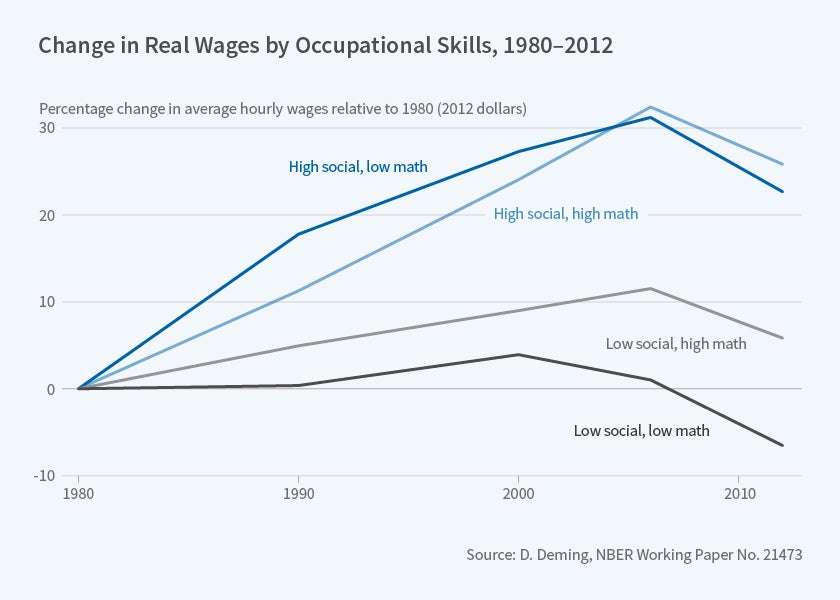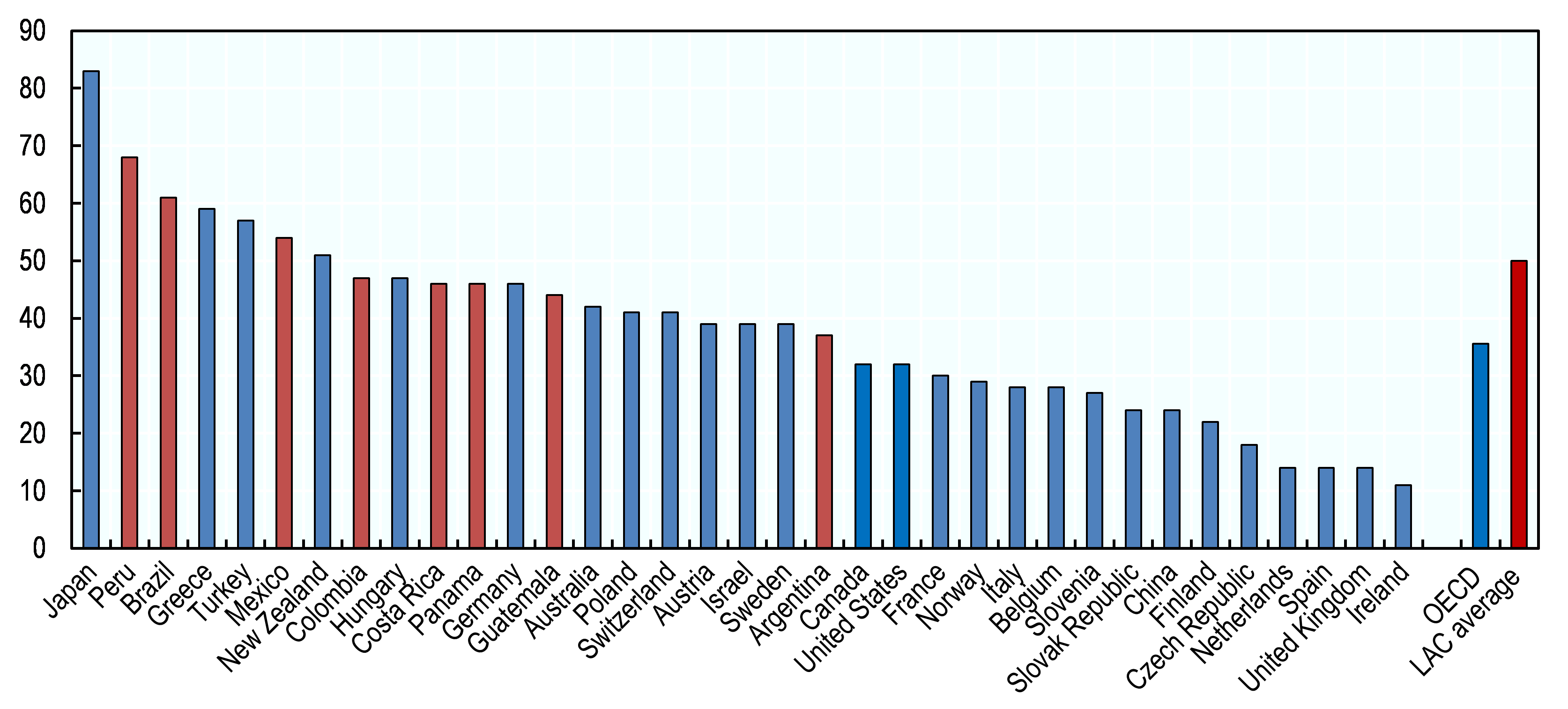Is your career everything you were hoping for?
Does it seem like something is missing, but you aren’t sure what?
Do you find yourself wishing you could work for a better company with higher-quality clients, where people are awesome at what they do and the work is fascinating?
You know you aren’t where you want to be, but you aren’t sure how to get from here to there.
Maybe you’ve focused on getting a degree or certifications. Maybe you’ve already learned as much about your role as you can. Maybe you’ve mastered the technical aspects of your work.
And yet, something is still missing.
If this is you, there’s a very good chance that soft skills are what’s holding you back. More specifically, that your current level of soft skills isn’t high enough to unlock the opportunities you’re dreaming of.
What are soft skills?
In a nutshell, soft skills are how you think, feel, and handle yourself. They’re useful for every job, in every industry, everywhere in the world. And for life in general.
The opposite of soft skills is hard skills, which are the technical or specific skills that you learn in order to do a particular job.
There are hundreds of soft skills and thousands upon thousands of hard skills out there. Let’s look at a few examples of each.
Examples of soft skills:
- Problem solving
- Self-awareness
- Active listening
- Collaboration
- Goal-setting
- Creativity
- Motivation
- Empathy
- Public speaking
- Analytical thinking
Examples of hard skills:
- Video production
- Budgeting
- Website design
- Advanced spreadsheet formulas
- Market research
- Database management
- Technical writing
- Project management
- Quality assurance
- Event planning
As you can see, soft skills can be very specific without relating to one particular job or industry. They tend to be connected to how you manage yourself, how you relate to others, and how you go about your work.
Any given job involves a mix of hard and soft skills. For example:
- A project manager discovers the needs of the project, creates timelines, and allocates resources (hard skills), and to do that effectively they use analytical thinking, decision-making, and goal-setting (soft skills). They also collaborate with team members, and when issues inevitably arise, they use empathy, problem solving, and conflict resolution (more soft skills).
- A designer uses best practices, market research, and their design expertise to create product packaging (hard skills). They also manage their stress daily, present their ideas clearly to other stakeholders, receive feedback graciously, and collaborate with the rest of the product team (soft skills).
- A solopreneur does market research, creates and prices their products and services to match their clients’ needs, and provides their expert services on an ongoing basis (hard skills). They also manage their time, keep themselves motivated, network to find new clients, actively listen to existing clients, and use critical thinking to power their expertise (soft skills).
Every human on earth has some level of prowess with some soft skills. It’s part of being social creatures.
But if you’re trying to take your career further, the basics probably won’t be enough.
The importance of soft skills for your career
Would it surprise you to know that soft skills actually play a bigger role in your professional success than technical skills? Just think about the examples we mentioned above.
What good is insightful market research if you can’t make your deadlines?
What good does it do you to have amazing skill as an attorney if you’re so stressed that you’re always on the verge of burnout?
What good is it to know how to use project-management software if you don’t have the analytical and problem-solving skills to really understand what needs to be done?
There’s also a lot of industry data proving soft skills to be crucial in the workplace:
1. According to the World Economic Forum in their 2023 report The Future of Jobs, 8 of the top 10 most important “core skills” are now soft skills.

2. According to global consulting powerhouse McKinsey in their 2021 reskilling report, since the pandemic, “Most of the skills that companies are increasingly focused on developing are social, emotional, and advanced cognitive.”

3. According to the National Bureau of Economic Research’s article The Value of Soft Skills in the Labor Market, “Economists are increasingly focused on the importance of so-called “soft skills” for labor market success” and “Employers frequently list teamwork, collaboration, and oral and written communication skills as highly valuable yet hard-to-find qualities in potential new hires.”

4. In Harvard University’s study Soft Skills and the Science of Human Potential (PDF), they found that there’s a “strong association between labor market outcomes and ‘non-cognitive’ skills.”

5. According to the BBC’s article ‘Soft Skills’: The Intangible Qualities Companies Crave, “Employers are increasingly considering a candidate’s soft skills as closely as their experience and explicit technical specialties, say experts.”
“As many of the highly technical parts of work are becoming increasingly automated, or replaced by technological tools, companies are instead looking for workers who can problem-solve, juggle larger responsibilities and work well with others.”
But the need for soft skills hits even closer to home:
6. In the World Economic Forum’s article Latin America has the biggest skills gap in the world, they point out that, “Over 4 in 10 firms in Latin America say they have difficulty finding workers with the right skills” and “When companies talk about a skills gap, they are often referring to soft skills.”

Beyond these examples, there are hundreds of studies showing that having well-developed soft skills leads to:
- Being more in demand with employers and clients
- Higher chance of promotions
- Better leadership abilities
- Better collaboration and teamwork
- Being more satisfied with your work
- Better relationships with clients
- Being more adaptable to new challenges
- Lower levels of stress and anxiety
- Stronger professional networks
- Higher quality of work
- Higher earnings potential
- Greater influence and persuasion
- Better work-life balance
The question is: Have your soft skills reached the level you need to meet your career goals?
The 5 soft skills that make the biggest impact
We mentioned earlier that there are tons of soft skills. Kressca has analyzed which of those skills plays the most important role in developing your career. We asked:
- Which soft skills are most lacking in Latin America?
- Which soft skills are most important to companies?
- Which soft skills offer the most benefits for the effort it takes to learn them?
And we started to notice some intriguing patterns.
Once we identified the five most crucial soft skills, we found that each one leads to the next. So once you start learning one, you’ll be able to learn the next faster and more easily.

Here’s how it works:
1. Growth mindset: Adopting a growth mindset primes you to be open to change and willing to embrace the challenges that will help you advance in your career. It also prepares you to think clearly about yourself and the road ahead, which opens up your capacity for…
2. Critical thinking: Honing your critical-thinking skills enables you to analyze situations, set goals, solve problems, make decisions, and think creatively. It might as well be a superpower. Not only that, but thinking critically sets the stage for…
3. Emotional intelligence: Learning to understand and manage your own emotions and your relationships with others makes your daily life easier and more pleasant in dozens of ways—and can literally open doors as you build better rapport with clients and colleagues. Beyond that, it’s a non-negotiable requirement for…
4. Communication skills: These days, all work is collaborative in one way or another. If you can’t express yourself clearly and understand others, it will eventually stagnate your career. In contrast, mastering communication skills can position you as a trusted colleague with persuasive ideas. Plus, it paves the way for…
5. Teamwork: Being a high-quality team member is really the end goal. It’s what companies need the most, because today’s intricate business processes involve lots of links between individuals or teams where a disconnect can mean missed deadlines, unhappy clients, failed projects, and lost revenue.
Being able to show prospective employers and clients that you’re a first-rate team member will set you apart as a job candidate, a freelancer, or an entrepreneur.
“How can I get started?”
The wonderful thing about soft skills is that you can start this very moment, without enrolling in any programs or even spending a dollar.
In our opinion, the best first step is:
Practice observing yourself: your thoughts, emotions, actions, motivations … all of it.
Simply observe yourself without criticizing or making excuses. Learn to be honest within your own heart and mind about what’s happening in your life and the role you play.
Most people never even get this far. But if you can’t be truly honest, even within the safety of your own mind, how will you ever challenge yourself to grow?
Conclusion
Soft skills can make or break your professional career. If you want to advance in your role, go independent, open your own business, work with high-quality companies, make more money, move to the United States or Europe, and be proud of what you’ve accomplished, mastering the top five soft skills is a must.
In the coming months, we’ll be talking in depth about each of the soft skills we discussed here. So stay tuned!


